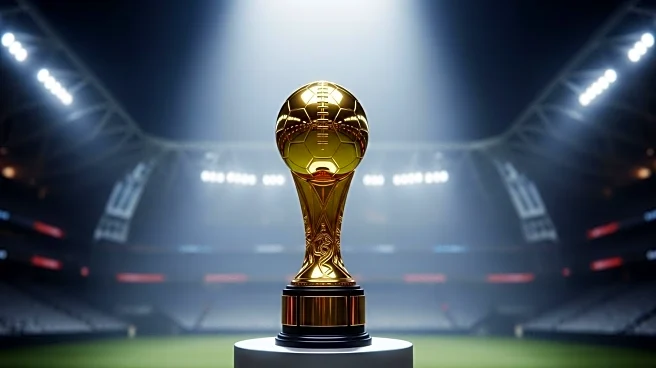What's Happening?
The Saudi Pro League, known for its significant spending on football transfers, is shifting its strategy towards privatization. This move is part of Saudi Arabia's Vision 2030, aiming to diversify its economy and establish the kingdom as a global cultural hub. The league spent over $1 billion on transfers in 2023, attracting stars like Cristiano Ronaldo. However, spending has decreased, with $486 million spent this year. The privatization strategy involves transitioning from state-led spending to private ownership, aiming to professionalize the league and compete with major global leagues. The Public Investment Fund and the Ministry of Sports have initiated privatization, with three clubs sold to private entities, including a U.S.-based group acquiring Al-Kholood.
Why It's Important?
Privatization is crucial for the financial sustainability of the Saudi Pro League. It addresses the unsustainable spending levels and aims to limit club expenditures. This strategy is expected to bring financial expertise and global networks through foreign investors, enhancing the league's professionalization and attractiveness to top players. The move aligns with the commercial and competitive models of Europe's elite leagues, potentially elevating Saudi talent to international platforms and improving the league's reputation. It also supports Saudi Arabia's broader economic diversification goals, reducing reliance on oil revenues.
What's Next?
The success of privatization will depend on creating a quality football ecosystem that extends beyond sporting achievements. Saudi Arabia aims to balance spectacle with sustainability, using football as a catalyst for economic diversification. The league's ability to attract investors into football could lead to broader economic investments, supporting Vision 2030. The focus will be on developing local talent and integrating them into global football markets, contributing to Saudi Arabia's ambitions of qualifying for future World Cups.








